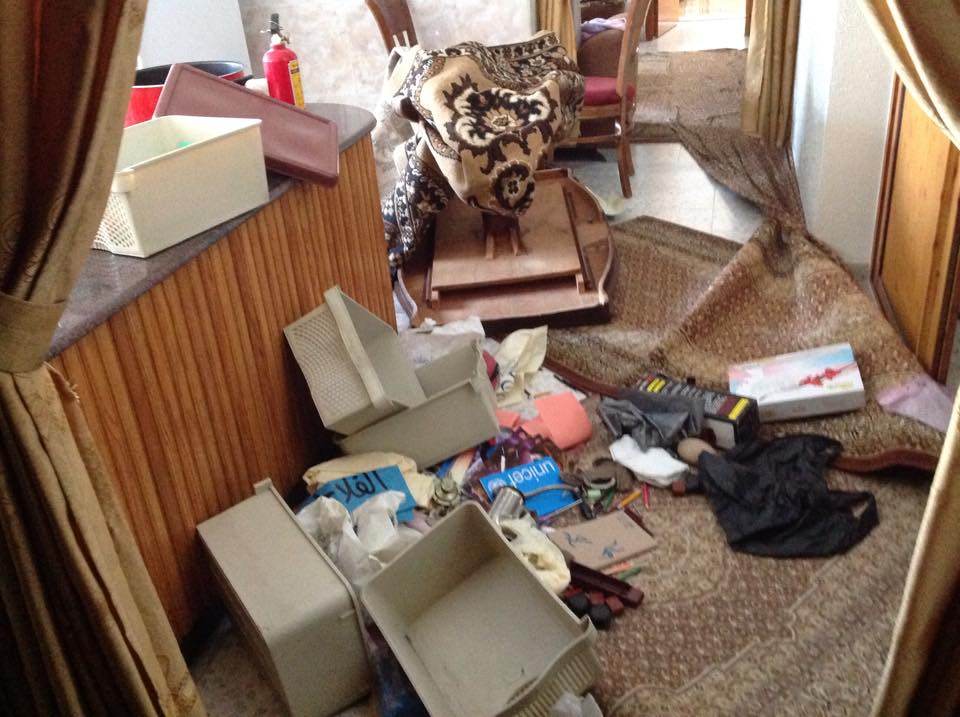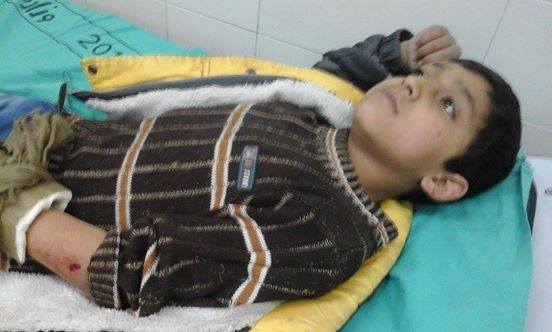Category: Hebron
-
“If you don’t open the door in 5 minutes, we will blow it up”
24th February 2015 | International Solidarity Movement, Khalil Team | Hebron, Occupied Palestine During the night of the February 22nd, Israeli occupation forces raided two homes belonging to the Edies family, in the Al-Khalil (Hebron) neighbourhood of Tel Rumeida. At least thirty soldiers invaded the homes of Yahya Edies and Saleh Edies at around 2:30 am on Sunday morning.…
-
10-year-old boy attacked and arrested for playing in the snow
22nd February 2015 | International Solidarity Movement, Khalil Team | Hebron, Occupied Palestine On the afternoon of the 21st of February Saleh Abu Shamsiya, a 10-year-old Palestinian boy, was attacked by settler youth in the Al-Khalil (Hebron) neighborhood of Tel Rumeida. Saleh’s father and activist with the group Human Rights Defenders Imad Abu Shamsiya reported that the settlers, who looked around 18-19 years old, surrounded his son while…
-
Israeli settlers cut 36 olive trees in the South Hebron Hills
22nd February 2015 | Operation Dove | South Hebron Hills, Occupied Palestine On the morning of February 20, Palestinians in the South Hebron Hills awoke to find that 36 olive trees had been cut or seriously damaged during the night, probably by Israeli settlers. The 25 year-old trees, owned by the Hushiy family from Yatta, were located near the village…



